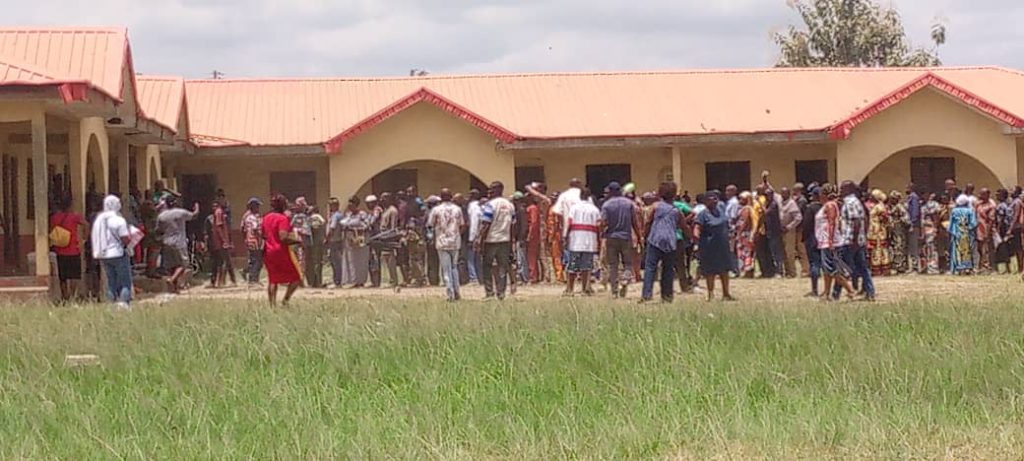Rising Cases of Mob Justice
A few days ago, a mob attacked a driver, Tope Olorunfemi, a twenty-five-year man at Ijoka Road, Akure, the Ondo State capital, whose car crushed some persons at a spot while driving; on allegations of being a ‘Yahoo Boy’. Two days later, a mob attacked Okolie Ahinze, a 500-level student of the Department of Civil Engineering, Obafemi Awolowo University, Ile-Ife, Osun State, beating him to death, on allegations that he stole a mobile phone. In September 2022, a mob attacked Abubakar Tahir, a reporter with the Manjaha newspaper at Ganuwar, Kuka Village in Hadeija Local Government area of Jigawa State, almost drowning him, on allegations that he wanted to cover a devastating flood in the area.
ALL over the country, mobs attack people like Olorunfemi, Ahinze and Tahir, wounding or sometimes killing them, on flimsy allegations such as theft of mobile phones or as fraudsters or for other reasons, without seeing the need for recourse to justice. In 2014, according to Premium Times, 43 percent of Nigerians witnessed cases of mob justice, with Nigeria and Cameroon rated as having the highest rates of jungle justice in Africa. In May 2022 alone, according to a survey, 32 cases of mob justice took place in Nigeria, with nearly 200 persons losing their lives between 2020 and 2021, and 107 deaths ultimately recorded in 2020. From 2019 to date, according to SBM Intel, 278 cases of mob justice took place in Nigeria, resulting in the death of 391 persons, and 223 of the cases happening in the southern parts of the country, especially the Southwest.
ACCORDING to Olorunfemi’s mother, her son should have been allowed to stay alive, because he operated an Uber business in Lagos and did not partake in internet fraud, and she gave plausible reasons to indicate that the mob meted out jungle justice on an innocent man. In similar tone, the Osun State Police Command, stated that the law enforcement agencies should have been allowed to investigate the case of Ahize’s theft of the mobile phone, and the students of Obafemi Awolowo University seemed to agree, blocking the school gate, thereby disrupting academic activities. In the case of Tahir, Anthony Bellanger, the General Secretary of the International Federation of Journalists, said the slain journalist should have been allowed to inform and educate the public about the devastating flood at Jigawa, and said Tahir’s murder meant people were denied information that bordered on public interest.
THE HOPE frowns at the spate of jungle justice across the country which has left many innocent souls dead. It is shameful that Nigeria could be rated as having one of the highest rates of jungle justice incidents in Africa, and views with alarm the rampant occurrence of the phenomenon in the Southwest. We condemn mob justice because it results in the death of innocent persons such as Olorunfemi, prevents justice from taking place in the case of Ahinze, and intensifies poverty as people like Tahir should have been allowed to investigate a flood that caused poverty.
JUNGLE justice is fueled by several factors. In a recent report by Bincika Insights, 71 percent of Nigerians lacked trust in the judiciary, while about 65 percent scorned the nation’s anti-corruption agencies, meaning people don’t believe the nation’s institutions can dispense justice to people like Olorunfemi, who they believe operate as fraudster or Yahoo Boy. In a poll conducted by HumAngle in 2016, 90 percent of 165 people who took part lacked trust in using Nigeria’s Emergency Helpline numbers, because they don’t believe institutional frameworks tackle issues related to justice pertaining to people like Ahinze.
IN a survey carried out by Afrobarometer in 2008, about 46 percent of respondents expressed lack of trust in the Nigeria Police, meaning they believe in carrying out jungle justice on people like Tahir, even if they did not infringe the laws of the land. Obviously, Nigerians settle for jungle justice because they lack trust in the ability of governmental institutions like the police, the judiciary, and emergency numbers to tackle issues pertaining to fraud or crime, preferring to mete out instant reprisals.
TO stop the ugly trend, the federal and state governments should continually activate laws meant to tackle the issue of jungle justice, so that people can stop taking laws into their hands. Nigerians should imbibe their constitutional obligation to arrest and detain suspects pending an official prosecution, rather than applying mob action on them. Citizens should also be educated through the mass media and other channels of government about the criminality involved in meting out jungle justice on people, while stakeholders such as landlords, tenants, vigilante groups and others should be involved in the initiative.
IF governmental institutions such as the police live above board in relation to criminality in the country, the rising cases of jungle justice is likely to reduce, especially when citizens understand the criminality surrounding jungle justice.










